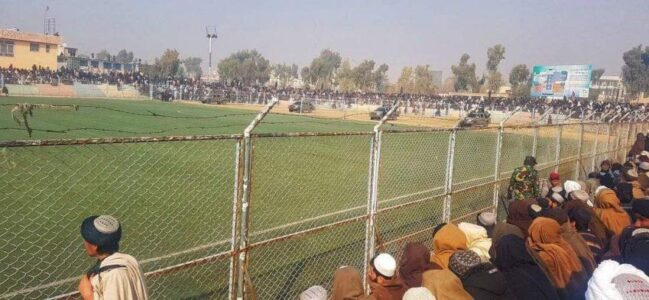
Taliban Authorities Flog Nine People in Kandahar
The Islamic Emirate court in southern Kandahar has announced that nine people allegedly accused of committing “adultery and theft” have been flogged in public in this province.
Kandahar province’s court of appeals announced in a press release on Monday that nine individuals allegedly accused of committing adultery and theft have been lashed in public. The Taliban authorities have not provided further clarifications in this regard.
Meanwhile, according to official sources, the Islamic Emirate authorities have lashed a man and woman in front of a huge crowd in Badakhshan province, accused of having extramarital affairs.
Public punishment which includes flogging, stoning, and public execution has been widely exercised by the Taliban authorities across the country in the recent past, drawing massive criticism from the international community.
Taliban Supreme leader Hibatullah Akhundzada issued a series of decrees in the recent past, legitimizing some strict practices which are not in line with the contemporary lifestyle of the people. Barring Afghan girls from getting secondary education and university lessons is a clear example, which sparked serious demonstrations in some parts of Afghanistan.
Additionally, the latest announcement by the Taliban which restricted women employees from working with non-governmental aid organizations was another clear example of their gender-based apartheid policies.
Although a considerable number of international aid organizations and foreign governments called on Afghanistan’s de facto authorities to reverse their decision – respect human rights, particularly that of women and girls, nothing has changed for better so far.
Afghan women and girls have been left deprived of their inherent rights to participate in education, work, sports and more – with no hope, no future, and no prospects under the country’s ruling regime.
Whereas the IEA authorities emphasize practicing the strict version of Sharia laws with no exceptions in social, cultural, ethical, and religious matters.
Source » khaama





